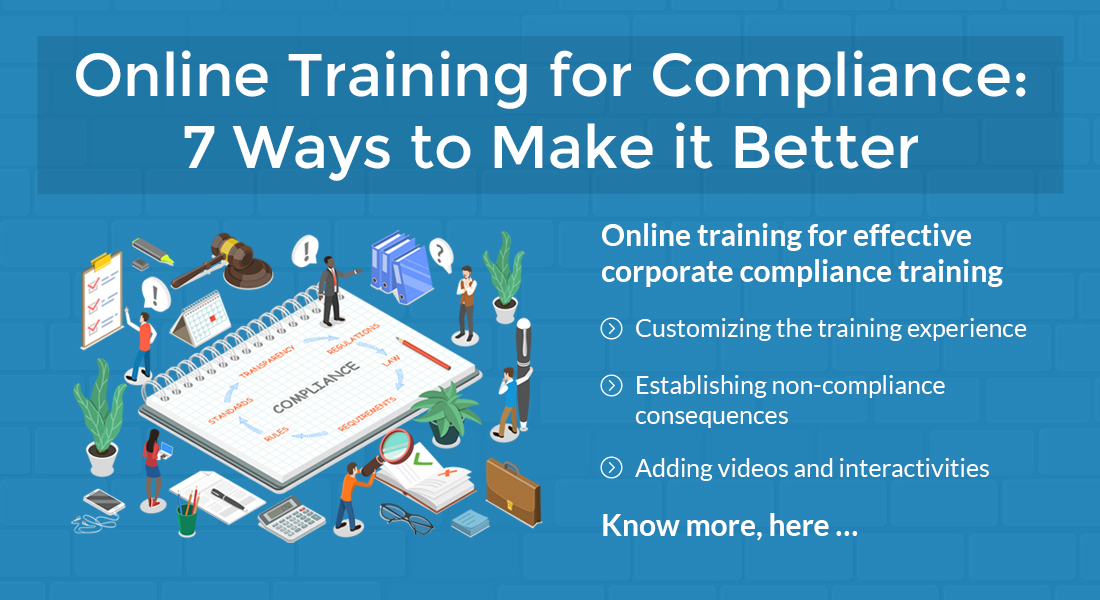5 Game-Changing Tech Resources for Corporate Training!

Technological changes are revolutionizing every aspect of the corporate world, and corporate training is experiencing a significant transformation as well. In today’s fast-paced environment, organizations are increasingly harnessing a diverse array of technologies to elevate their training programs. This shift not only facilitates learning but also empowers employees to engage with training content anytime, anywhere, and on any device.
Imagine being able to access a wealth of knowledge at your fingertips, whether you’re in the office, at home, or on the go! From interactive eLearning modules to virtual reality simulations, the possibilities are endless. These innovative tools are not just enhancing workplace training; they are reshaping how we think about employee development.
As technology continues to advance, the way we train and grow our workforce will only become more dynamic and impactful.
→ Download Template: Align Training with Business Goals
Table of Contents
- What is the Importance of Technological Resources for Corporate Training Today?
- What are the Benefits of Tech Resources?
- What are the Technological Resources for Enhancing Corporate Training?
- How does an LMS aid Technological Resources for Corporate Training?
What is the Importance of Technological Resources for Corporate Training Today?
According to LinkedIn Workplace Learning Report 2024, 74% of L&D leaders emphasized online learning as essential in 2024. This statistic reveals how technology is integral to modern corporate training.
Technological resources for corporate training encompass a wide array of tools and platforms designed to enhance the learning experience within organizations. Additionally, advancements in mobile learning applications enable access to training materials anytime and anywhere, facilitating a continuous learning culture.
Moreover, technologies such as artificial intelligence and data analytics are being integrated into training programs to offer personalized learning experiences and track employee progress more effectively. As companies strive to remain competitive, the integration of these technological tools in corporate training has become a crucial aspect of workforce development strategies.
What are the Benefits of Tech Resources?
Here are the top benefits of tech resources:
1. Flexibility:
- Employees can engage with training materials at their own pace, making it easier to balance learning with their work responsibilities.
- Online platforms allow for training sessions to be accessed from anywhere, accommodating remote and hybrid work environments.
2. Scalability:
- Technology enables organizations to train a larger number of employees simultaneously, regardless of their location.
- As companies grow, technological resources can easily adapt to accommodate an increasing workforce.
3. Cost-Effectiveness:
- Digital training solutions often reduce the need for physical materials and venues, leading to significant cost savings.
- Organizations can also minimize travel expenses associated with traditional training methods.
4. Diverse Learning Methods:
- Technology facilitates a variety of learning modalities, including video tutorials, interactive simulations, and virtual workshops.
- This variety accommodates various learning preferences, boosting the training’s overall effectiveness.
5. Real-Time Feedback and Assessment:
- Many digital training platforms offer instant feedback tools, allowing employees to assess their understanding and progress immediately.
- This capability can help identify knowledge gaps quickly, enabling timely interventions.
What are the Tech Resources for Enhancing Corporate Training?
Want to take your Corporate Training to New Heights of Success?
Use these Game-changing Technological Resources
- eBooks
- eLearning Courses
- Mobile Learning
- Webinars
- Videos
1. eBooks
eBooks have revolutionized the way training materials are delivered in corporate settings. Unlike traditional printed manuals, eBooks offer a flexible and digital format that enhances learning experiences for employees.
Here are some key benefits of using eBooks in corporate training:
- Accessibility: Employees can access training materials anytime and anywhere, promoting convenience and self-paced learning.
- Continuous Learning: The ease of retrieval encourages a culture of ongoing learning and skill development.
- Easy Updates: Digital formats allow for quick updates and revisions, ensuring employees always have the latest information.
- Cost-Effective: Reduces printing and distribution costs associated with traditional manuals.
Training situations it can be used in:
eBooks can be useful in any training situation. Audio, videos, and external links can be embedded to make them interactive and useful.
Understanding with an example:
Imagine a onboarding program where new employees receive an eBook that outlines the company’s policies, culture, and key processes, allowing new hires to learn at their own pace and revisit sections as needed. By integrating this eBook into the training process, the company ensures that employees have a comprehensive resource to reference, enhancing their understanding and engagement from day one.
2. eLearning
eLearning provides structured learning to participants without having to commit to a specific time or location for the training to take place. Online courses can be created as short modules using eLearning authoring tools. These can be uploaded onto an Learning Management System (LMS) so that employees are able to access them easily. When the training content is lengthy, it can be divided into microlearning or can be formed into an eLearning curriculum that can be completed over a period of time. Personalized learning experiences can be provided too with custom eLearning.
Here are some key benefits of incorporating eLearning courses in corporate training:
- Flexibility: The freedom to learn at your own pace and convenience, whether at home, on the go, or anywhere in between.
- Modular Design: Short, targeted modules that allow learners to focus on specific topics without feeling overwhelmed.
- Easy Access: A wealth of content available through LMS, ensuring resources are always just a click away.
- Microlearning Options: Lengthy material broken down into bite-sized pieces, making complex concepts easier to grasp and retain.
- Comprehensive Development: A well-rounded eLearning curriculum that encompasses various skills and knowledge areas, catering to diverse learning paths.
- Personalization: Customized learning experiences that meet the unique needs and preferences of each learner, enhancing engagement and effectiveness.
Training situations they can be used in:
Almost all training needs can be addressed through eLearning or by opting for a blended learning approach.
Works great for:
Process training
Software Simulations training
Product training
Understanding with an example:
An eLearning course designed for sales professionals. It features interactive modules covering everything from product features and technical specifications to customer use cases and sales strategies. With quizzes for self-evaluation and a certification upon completion, this course equips sales teams with the expertise to confidently engage customers and close deals effectively, enhancing their performance from the start.

Align Training with Business Goals
Editable Questionnaire to Help You Make the Right Choice!
- Identify organizational goals
- Check what your people need to do achieve those goals
- Identify SMART learning objectives to fill performance gaps
- Design for impact
3. Mobile Learning
Mobile learning, often referred to as mLearning, is an innovative approach to training and education that leverages mobile devices such as smartphones and tablets. As technology has advanced, mobile learning has gained popularity due to its ability to offer training solutions that are both flexible and accessible, accommodating the modern learner's on-the-go lifestyle. mLearning modules can include interactive quizzes, videos, simulations, and microlearning that cater to different learning preferences and schedules. Overall, integrating mobile learning into corporate training strategies empowers organizations to deliver effective, adaptable, and learner-centric learning experiences.
Here are some key benefits of using mobile learning in corporate training:
- Convenience and Accessibility: Enables learning anytime and anywhere, removing the barriers of location and time.
- Engagement Enhancement: Utilizes diverse multimedia formats like videos, quizzes, and interactive graphics to keep learners engaged.
- Real-time Access: Provides instant access to up-to-date resources and information, ensuring learning content is current and relevant.
- Cost-effective: Reduces the need for structured classroom environments and printed materials, saving on training costs.
- Just-in-time Learning: Encourages just-in-time learning by allowing learners to access specific information when needed, promoting practical application.
- Device Compatibility: Supports a range of devices, ensuring learners can use their preferred device, enhancing user comfort and experience.
Impressed with the benefits? Want to go ahead and harness the power of mobile learning? Then be sure to ask these 7 crucial questions!
Training situations it can be used:
Mobile learning is very useful to people who work in the field and are away from their desks for extended periods of time such as sales people, service engineers, pharma sales representatives, and so on. This format can be used for:
Product Training
Safety Training
Performance Support
Understanding with an example:
Imagine a construction company improving safety protocols through mobile learning. Employees use a mobile app with interactive safety modules, featuring videos on safe equipment handling, quizzes for understanding, and virtual simulations for emergency procedures. This approach allows workers to access crucial safety information anytime, enhancing their ability to recall and apply safety practices on the job. By leveraging mobile technology, the company ensures a well-prepared workforce, reducing accidents and increasing productivity.

4. Webinars
A webinar is the short form of web-based seminar and can be in the form of a presentation or a talk given by one or more presenters. In recent times, webinars have become very popular for corporate training purposes.
Here are some key benefits of adding webinars in corporate training:
- Cost-effective: Webinars significantly reduce travel and venue expenses, making it easier for organizations to allocate resources elsewhere.
- Flexible: Participants can join from anywhere, which is especially beneficial for remote teams, fostering inclusivity and participation regardless of location.
- Engaging: With interactive features like polls, Q&A sessions, and breakout rooms, webinars keep participants actively involved and encourage collaboration.
- Scalable: Webinars can accommodate large group of learners seamlessly, allowing organizations to train many employees at once without facing logistical challenges.
- Recordable: Sessions can be easily recorded, providing a valuable resource for future reference, review, or for those who couldn’t attend live.
- Up-to-date content: Webinars make it simple to update training materials quickly, ensuring that participants receive the most current information and best practices in their field.
Training situations they can be used in:
Webinars are used for a wide-variety of purposes and work well with small groups and large audiences. The level of interactivity in a webinar will depend on the number of participants involved. Some of the instances where it can be used are as follows:
Product training/Product launches
Customer/Dealer/Distributor training
New Laws/Processes/Systems introduction
Understanding with an example:
Consider a technology company gearing up for the launch of its latest software. By organizing a series of live webinars, the company can effectively demonstrate the software’s features and functionalities to its sales team and end-users at the same time.

Align Training with Business Goals
Editable Questionnaire to Help You Make the Right Choice!
- Identify organizational goals
- Check what your people need to do achieve those goals
- Identify SMART learning objectives to fill performance gaps
- Design for impact
5. Videos
Videos has become an indispensable tool for corporate training, offering a dynamic way for employees to absorb and retain crucial information. Video-based learning leverage visual impact to present content in a lively manner, making complex concepts more digestible and memorable.
Here are some key benefits of using videos in corporate training:
Enhanced Engagement: Videos capture attention better than traditional training materials, keeping employees more focused.
Improved Retention: The combination of visuals and audio helps reinforce learning, making it easier for employees to remember key information.
Flexibility: Employees can access training videos at their convenience, allowing for self-paced learning that fits their schedules.
Scalability: Videos can easily be distributed to a large audience, ensuring consistent training across teams and locations.
Cost-Effectiveness: Reduces the need for in-person training sessions, saving time and resources.
Impressed with the benefits? Want to get started with designing videos for corporate training? Here’s a quick video to help you get started.
AI Videos in Corporate Training
AI videos in corporate training personalize content to meet the unique needs of various learner groups. These videos can analyze performance data to recommend targeted training modules, addressing specific skill gaps. Additionally, AI-generated videos adapt in real-time to a learner's pace, enhancing engagement. The automation of video production, including features like automated voice-overs and smart editing, streamlines the creation of high-quality training materials. As technology advances, AI videos will be essential in ensuring employees are engaged and equipped with the knowledge necessary for success.

Training situations they can be used in:
Videos are versatile and can be used in almost all training situations but are particularly beneficial in the following trainings.
Product Training
Process Training
New Employee Training
Understanding with an example:
Consider a manufacturing company aiming to train its employees on a new assembly line procedure. By creating a step-by-step demonstration video, the company can visually guide their workforce through each stage of the process. The video can illustrate crucial safety precautions, detail the specific equipment usage, and highlight key techniques to ensure efficiency and productivity.
How does an LMS aid Tech Resources for Corporate Training?
It would be a good idea to have them all integrated into a single technological platform so that there is a blend of resources, synergy of efforts and disposal of complementary resources under a single roof for the benefit of both the organization and the learner. That’s where an LMS comes into play!
It is imperative for training managers to have technological knowledge to sustain in an increasingly digital world. Therefore, they have to know about the technological tools available for training purposes. At the same time, they have to front end the setup of a technological platform that will integrate all these technological resources under a single umbrella so that it becomes easy to administer, track and evaluate training programs. For this, an integrated LMS that incorporates technology and provides a holistic learning solution to employees is required, and this is what organizations need to work towards in future.
Here are some key benefits of using an LMS for corporate training:
- Centralized Resource Management: An LMS integrates all training materials and resources in one place, making them easily accessible for both trainers and learners.
- Enhanced Tracking and Reporting: Training managers can effortlessly monitor employee progress, assess performance, and generate comprehensive reports.
- Improved Flexibility and Accessibility: Employees can access training materials anytime and anywhere, accommodating different learning styles and schedules.
- Cost Efficiency: Reduces the need for in-person training sessions and travel, lowering overall training costs.
- Scalability: Easily expand training programs to accommodate growing teams and new employees without significant additional resources.
- Customizable Learning Paths: Tailor training programs to meet specific organizational needs, ensuring a more relevant learning experience for employees.
- Increased Engagement: Interactive features and multimedia content can enhance learner engagement and retention.
- Continuous Learning Opportunities: An LMS supports ongoing training and development, promoting a culture of continuous improvement within the organization.
By leveraging an LMS, companies are better equipped to meet the training needs of their workforce while adapting to the demands of a rapidly evolving digital world.
Here's an insightful video about how an LMS can enhance corporate training.
The Future Ahead!
In conclusion, leveraging tech resources in corporate training is crucial for any organization aiming to stay ahead in today's dynamic market landscape. By integrating advanced tools like AI and mobile learning solutions, companies not only enhance the quality of their training programs but also ensure they are engaging, versatile, and accessible. These tech resources provide valuable data and insights for a more personalized and adaptive training experience which traditional resources lack.
Aligning corporate training with business goals is fundamental to derive maximum benefit from these tech resources. This strategic integration not only supports an organization's growth trajectory but also maximizes return on investment.
Want to ensure your training initiatives are directly contributing to your organization’s strategic objectives? Get your hands on our expertly-designed template, crafted to help you align your training with your business ambitions. Don't let your business goals go astray with misaligned training. It's time to take control!
Stop guessing, start aligning!






